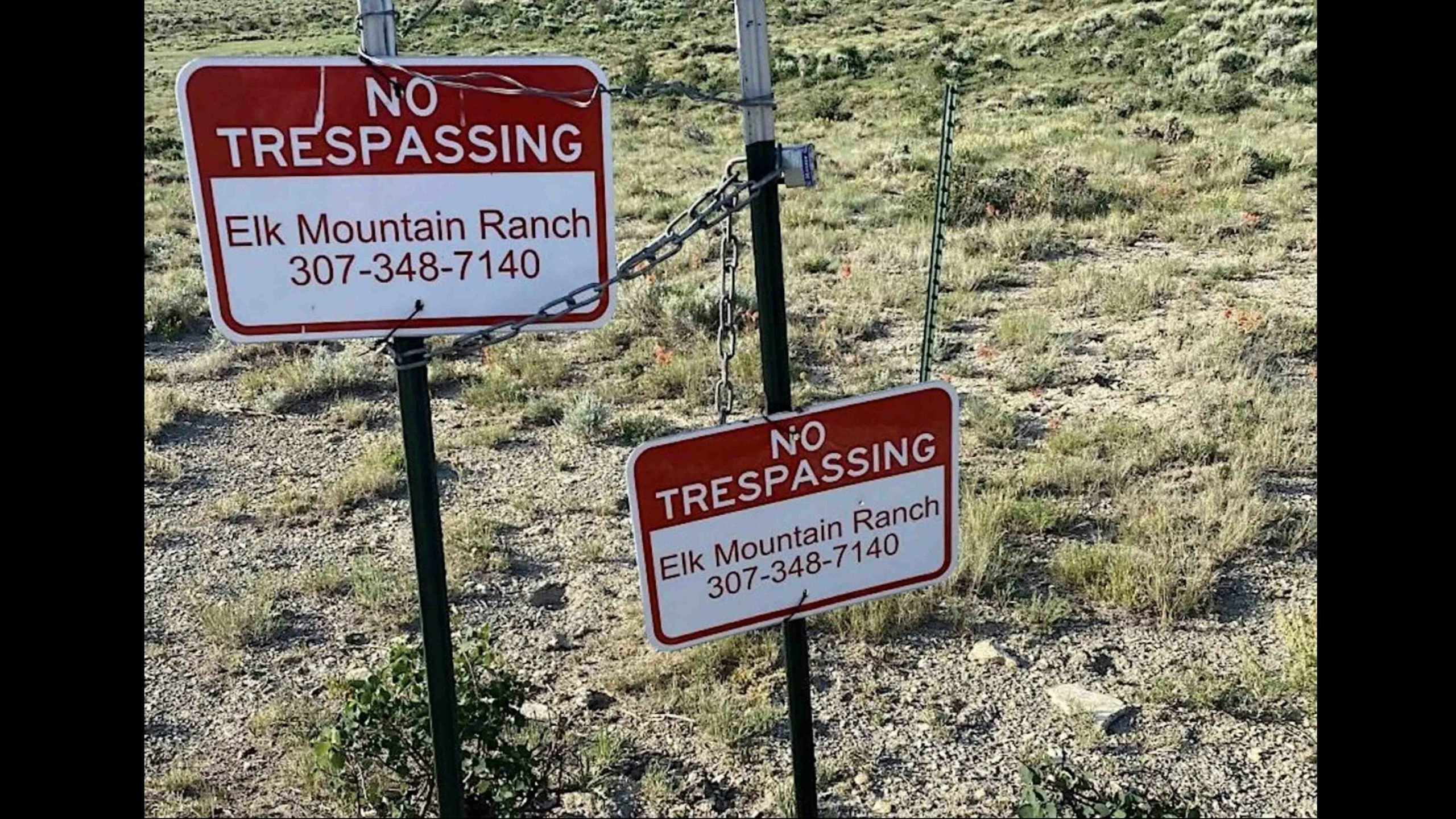Those Missouri hunters acquitted on trespass charges last week aren’t out of the woods yet. They’re still facing legal action in both state court and federal court.
The hunters face two separate legal actions — criminal charges in state court and a lawsuit seeking damages in federal court — stemming from two separate incidents. The actions are also separate from a criminal trial in which a six-member jury on Friday found the hunters innocent of trespass charges for violating the airspace of a private ranch.
All three of the actions stem from a practice of “corner crossing” — moving from one parcel of public land to another by stepping over the boundaries that separate the public land from private land.
Wyoming’s “checkerboard” land pattern leads to public and private lands being intermingled. Often, these parcels share corners, with public lands resting diagonally from each other. Access to one public parcel to another is often achieved by stepping over the coroner shared by public and private lands.
Here is a look at the nuances of the three cases the hunters have been facing.
First Trespass Case
Four Missouri hunters – Phillip Yeomans, Zachary Smith, Bradley Cape and John Sloensky – faced criminal trespass cases stemming from allegations they used a ladder-like device in 2021 to cross from one parcel of public land to another.
Carbon County prosecutors accused the men of trespassing on the private Iron Bar Ranch, even though they did not actually touch the private property. Wyoming law recognizes the airspace above private property as belonging to the property owner — so the “corner crossing” amounts to trespass.
However, the four men were acquitted by a six-person jury on Friday in a Carbon County court, ending that case.
Trespass Lawsuit
Although the jury’s verdict ended the first criminal trespass case, a separate lawsuit filed against the hunters is still ongoing.
Iron Bar filed a lawsuit in civil court separate from the criminal charges filed in Carbon County. It seeks $75,000 in damages on charges the hunters violated the ranch’s airspace.
The lawsuit was originally filed in state court, however, the hunters argued that because the lawsuit concerns public access to public lands, it should be heard in federal court.
The four hunters on Friday filed a document expressing their desire to keep the lawsuit filed against them in U.S. District Court, arguing the issue of control over public land is one that needs to be settled by a federal court.
“Lurking behind and hulking over (Iron Bar Ranch’s) state court pleadings stands a federal law behemoth: exclusive control over ‘common corners’ in checkerboarded lands shared by private lands and federally owned public lands and, as a result, the right to access public lands,” the hunters said in their response to Iron Bar Ranch’s attempts to move the lawsuit back to state district court, where it originated.
“(Iron Bar’s) claims necessarily raise substantial, deeply disputed questions of federal law because (Iron Bar) effectively seeks ownership and exclusive control overt the federally owned public domain, a question expressly controlled by federal laws and assigned to the federal courts for resolution,” it continued.
Experts in public land access have told Cowboy State Daily that if the federal court rules in favor of the hunters, it could have a major impact in how access to federal lands is handled.
At this point, the two sides in the case continue to file competing legal motions. No date for a trial has been set in federal court.
Second Trespass Case
Just days before the four hunters were found not guilty by the jury, Mark Nugent, deputy county and prosecuting attorney for Carbon County, filed new charges against three of the hunters stemming from a separate incident in 2020 near Elk Mountain Ranch.
Yeomans, Cape and Smith have all been ordered to appear in circuit court in Carbon County on June 6 to enter pleas to the charges of trespass and entering private property to hunt without permission.
As in the first case, the three are accused of crossing the boundary between the public land and the private Elk Mountain Ranch to hunt. Elk Mountain Ranch and Iron Bar Ranch are both owned by businessman Fred Eschelman.
According to the affidavit by Carbon County Sheriff’s Deputy Patrick Patterson, a sheriff’s deputy was contacted on Oct. 2, 2020 about a possible trespass at Elk Mountain Ranch.
The ranch’s foreman reported that three hunters on Elk Mountain shot and killed a bull elk on public land, but the land on which they killed the animal could only be reached if they trespassed on private land.
The deputy and foreman spoke with the ranch’s owner, who wanted the hunters either cited or arrested.
A deputy made contact with the hunters the next day, the affidavit said. The hunters said they knew they were crossing an intersection of private and public lands, but added they did not intend to trespass, the affidavit said.
The hunters repeatedly told the officer that their intent was to “corner cross,” without trespassing on the private land and that they used a GPS to find the intersection of two private and two public lands and then cross at the point where the four join.
Cape told the officer that there was a “no trespassing” sign in the area where they crossed, but the hunters continued to insist their intent was not to trespass.





